At least 164 killed in Kazakhstan protests, reports say
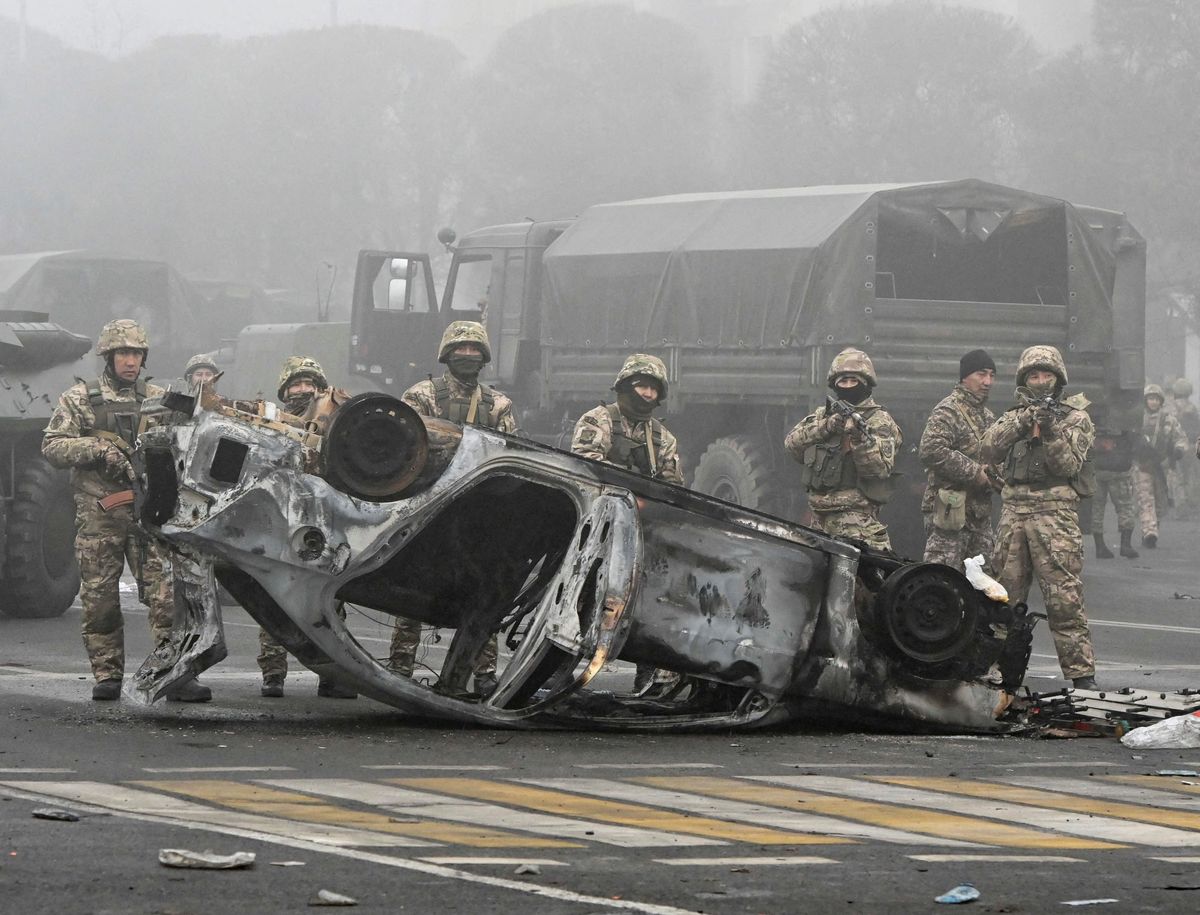
A few minutes every morning is all you need.
Stay up to date on the world's Headlines and Human Stories. It's fun, it's factual, it's fluff-free.
On January 2, protests erupted over the increase in gas prices after the government decided to remove price caps for them on the New Year, a change that hit poorer communities in the country the hardest.
What’s Kazakhstan’s economic situation like?
- Kazakhstan is the richest economy in Central Asia and grew rapidly after becoming independent from the Soviet Union back in 1991. The country is also sort of seen as a bridge between markets like China and South Asia with those of Russia and Europe.
- The country is really oil and metal-rich, being the top producer of uranium, the world’s ninth oil exporter and 10th largest producer of coal.
- But the thing is, throughout the economic rise of the country, income inequality also rose dramatically, with half of the population living in rural, isolated communities with minimal access to public services. About a million people out of the total population of 19 million are estimated to live below the poverty line.
- Many of these poorer communities rely on butane and propane gas because they’re cheaper and commonly referred to as “road fuels for the poor.” But the reason for those lower prices was because the government had price caps for them.
- But because of the artificially low prices domestically, energy companies, like Chevron Corp and Exxon Mobil Corp., preferred to export to sell higher internationally. Because of the consistent demand and the preference for producers to sell abroad, there was a constant domestic shortage.
- So in an attempt to ease the shortage, the government removed the price cap on the New Year, which backfired. Prices doubled and hit poorer communities the hardest. In the backdrop, annual inflation is running at close to 9%, the highest in more than five years, and the central bank has increased interest rates to 9.75%.
What happened last week?
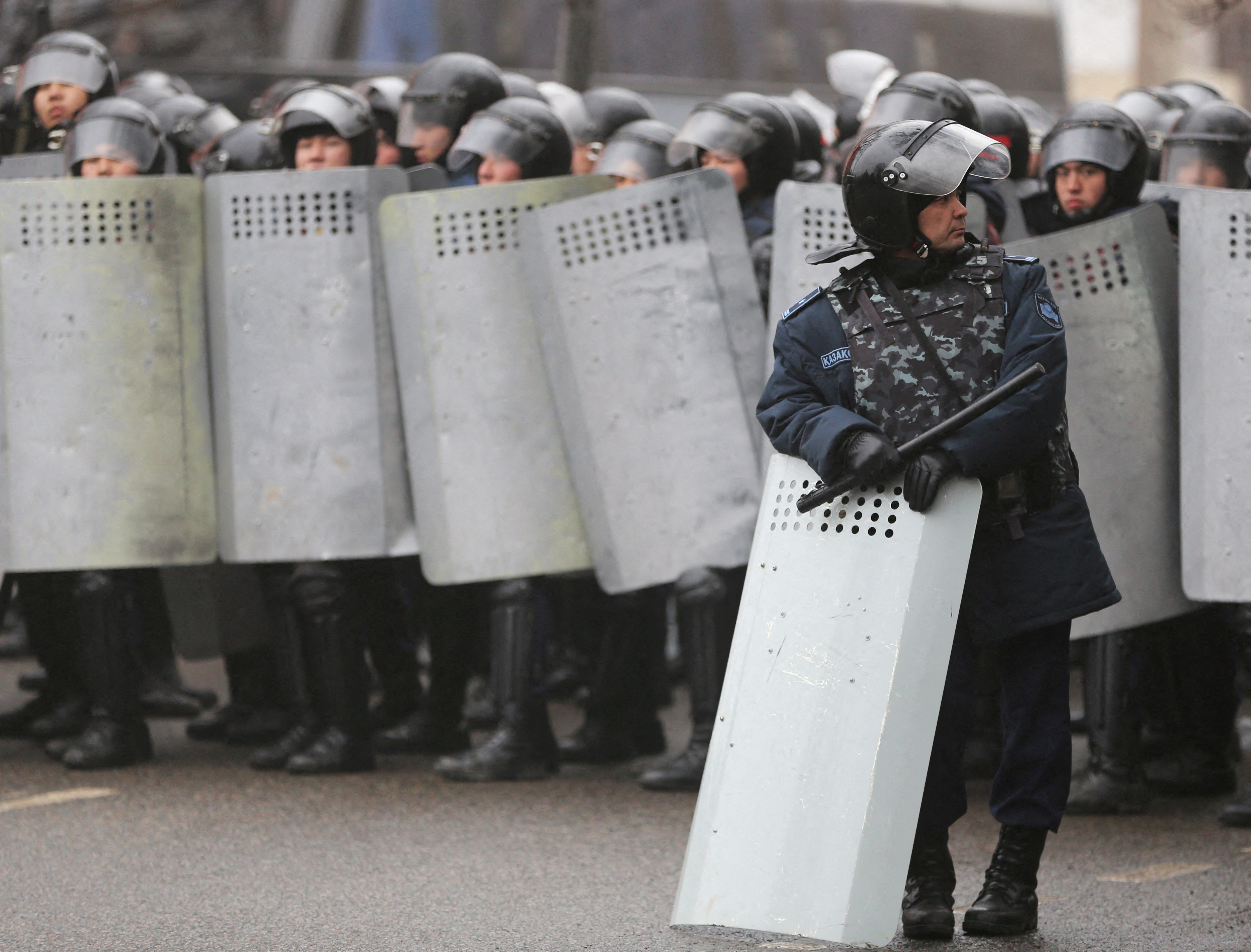
- On January 2, protests erupted over the increase in gas prices after the government decided to remove price caps for them.
- The protests then evolved and grew against the Kazakhstan government, an uprising that killed hundreds and injured thousands. It also led to protestors gaining control of government buildings, the resignation of the Kazakh government and the firing of top officials.
- In an attempt to qwell the protests, President Kassym-Jomart Tokayev declared a state of emergency and ordered security forces to “shoot to kill." Tokayev also requested the help of Russia.
- Russia then deployed a military alliance known as the Collective Security Treaty Organization (CSTO), a Moscow-led alliance of six former Soviet states – Russia, Armenia, Belarus, Kazakhstan, Kyrgyzstan and Tajikistan — to help restore order in the country. This is the first time the CSTO has undertaken such major action since it formed 20 years ago.
- In response, United States Secretary of State Antony Blinken criticized the president’s directive. “The shoot-to-kill order, to the extent it exists, is wrong and should be rescinded," he told ABC News’ This Week on Sunday. He also said the US was seeking clarification from Tokayev on why he had requested the presence of Russian troops.
- Citing health officials, over 164 people died during the protests. Almost 6,000 people have been arrested, including “a substantial number of foreign nationals," Kazakhstan’s presidential office said on Sunday.
- The presidential office also said that the situation had been stabilized and that “the counter-terrorist operation … will be continued until the complete elimination of the terrorists."
What’s next?
- There are several things to look out for.
- Firstly, the CSTO will be having a video conference on Monday to discuss the crisis.
- A statement from the alliance said, “During the event, the situation in the Republic of Kazakhstan and measures to normalize it will be discussed."
- The other is to see whether this incident affects the investment in Kazakhstan by Western states, as the country’s stability is what has helped it attract billions invested into its economy.
You drive the stories at TMS. DM us which headline you want us to explain, or email us.

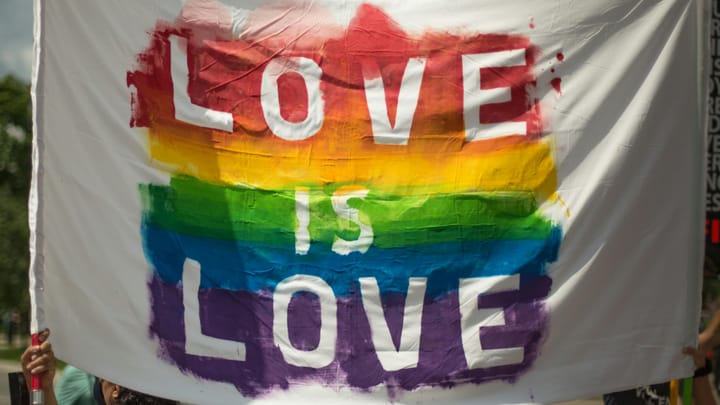
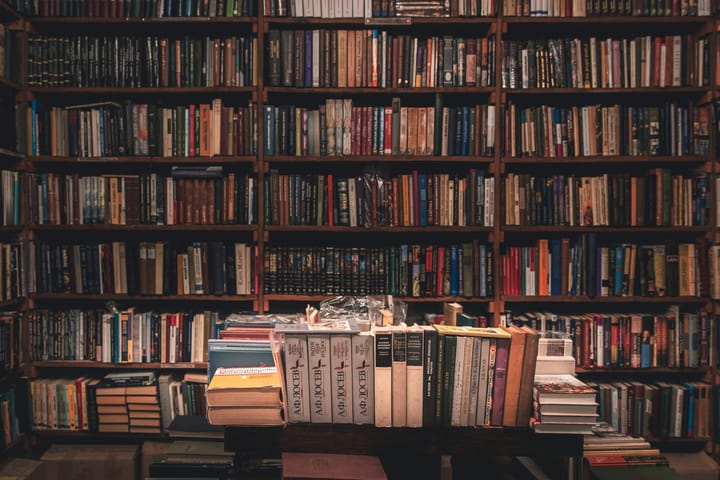
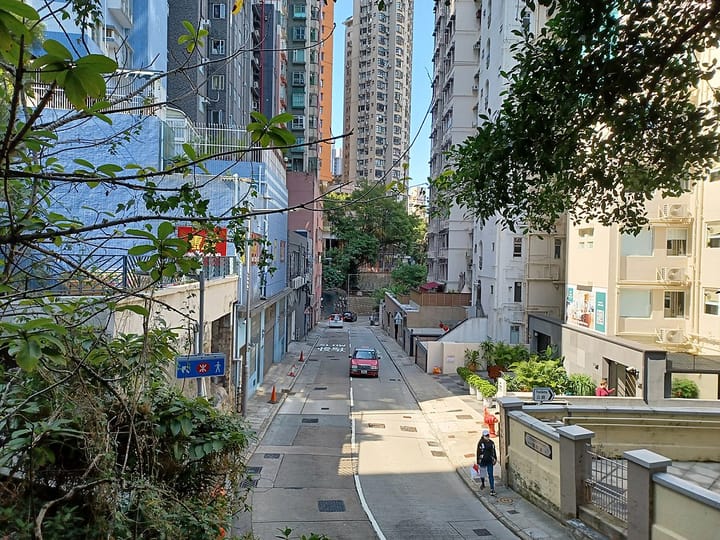
Comments ()